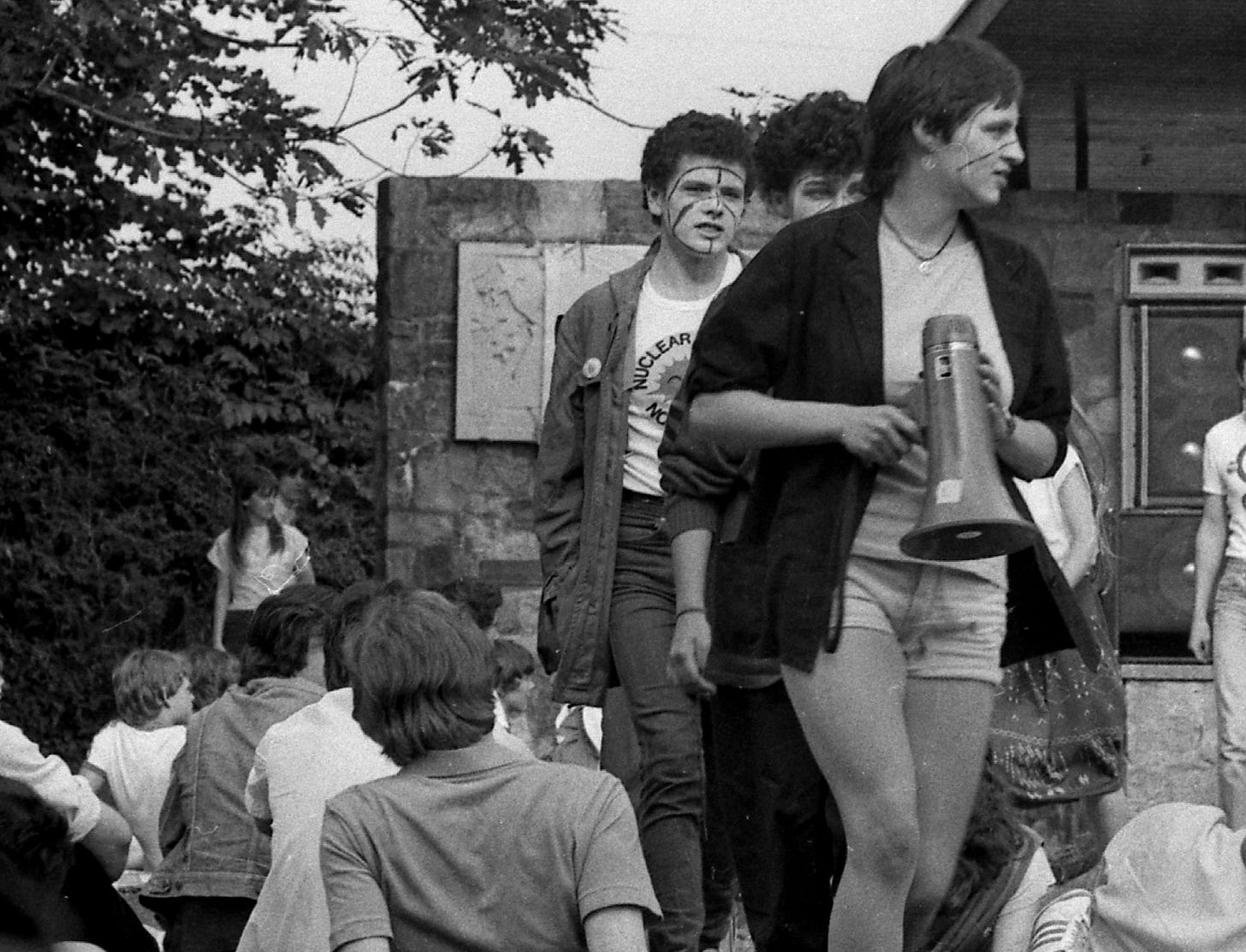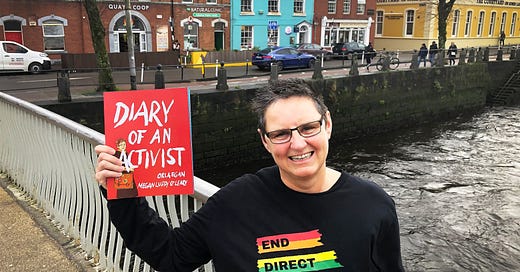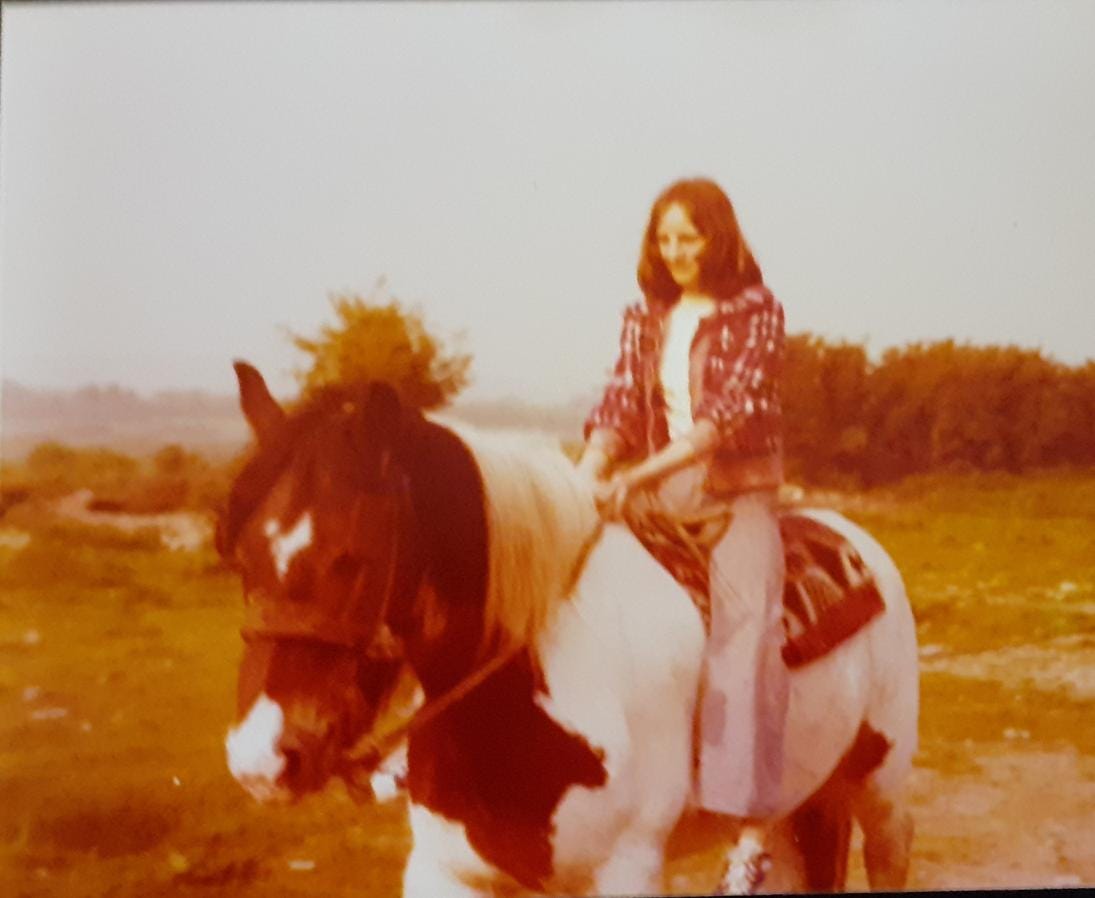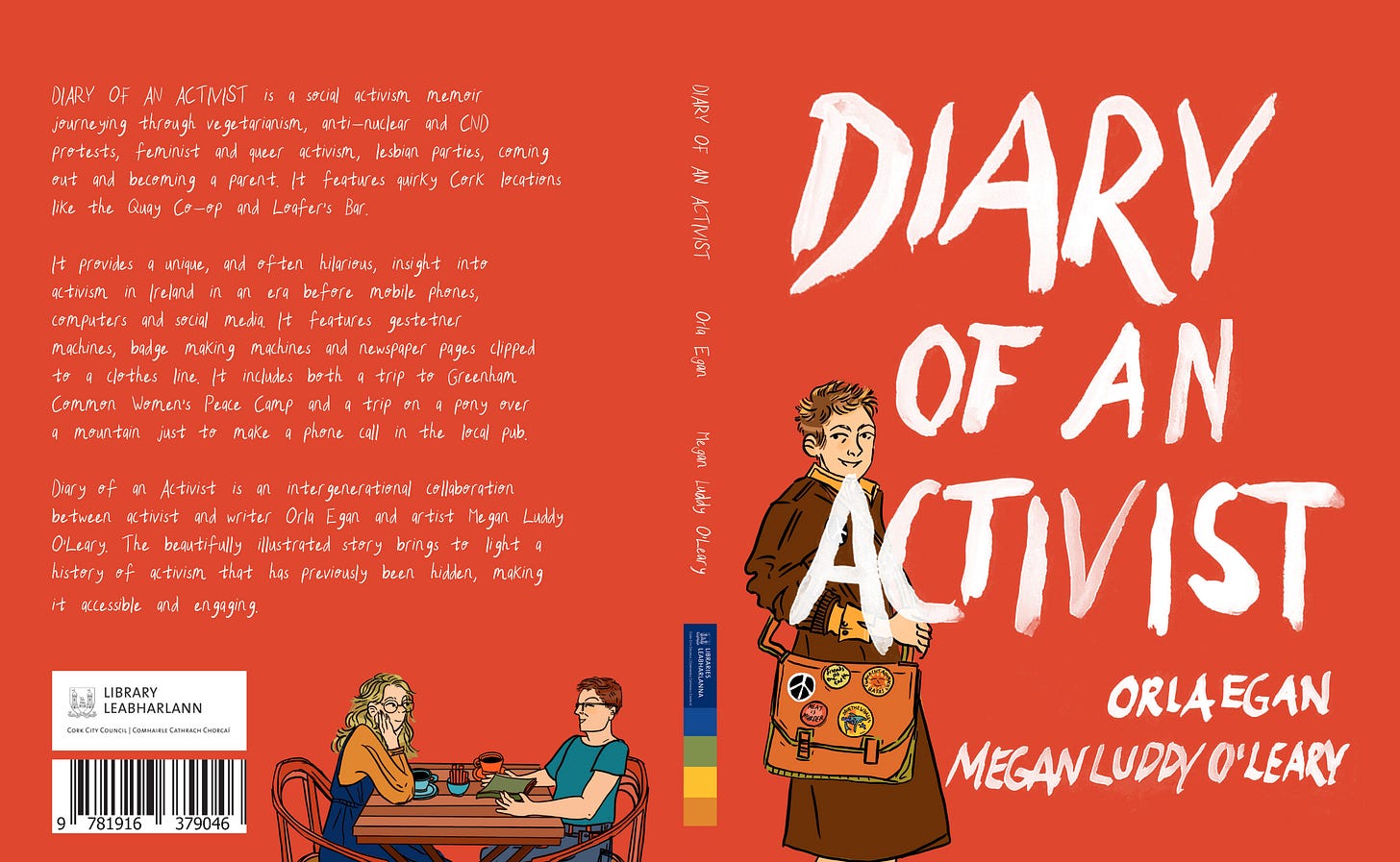The life of a Cork activist
Orla Egan started her lifelong involvement in numerous campaigns for social change in her early teens; her highly personal new book, Diary of an Activist, charts an era of enormous change in Ireland.

It’s a Cork gig that’s fondly remembered for its music: in the early eighties, Cypress, Mine! Freddie White, Stargazers, Belsonic Sound and others played at a festival for Youth CND in Fitzgerald’s Park.
But while many will hark back with nostalgia to the Peace in the Park festival for the promising young bands that played at it, for Orla Egan, the main memory is of the sweaty-palmed moment that she, at just 16 and one of the organisers of the event, as well as a founder of Youth CND (Campaign for Nuclear Disarmament), got up to address the assembled crowd.
Orla was already something of the seasoned activist, having attended her first Anti-Nuclear meeting with an older sister at the tender age of twelve.
But, as she recalls in her new book, Diary of an Activist, “I froze!! It was probably only for a second or two, but felt like a lifetime to me!” Orla found her voice, and used her time on stage between acts to remind the audience of the anniversaries of Hiroshima and Nagasaki, for which the August festival had been timed.
Ciarán Ó Tuama, a photographer and the lead singer of Cypress, Mine! captured a striking image of Orla that day, leading a small parade of fellow Youth CND members and armed with a megaphone.
Die-ins in Daunt Square
So-called “die-ins,” where protesters feign death in a public place, may have been hitting the news with relation to Just Stop Oil protests in the UK in recent weeks, but Orla was doing die-ins in Daunt Square back in the early eighties, when the threat of nuclear war was the big issue of the day.
“These days teenagers fear the imminent threat of climate catastrophe,” Orla writes in her book. “When I was a teenager, we feared the imminent threat of nuclear war.”
Today, sitting in the Quay Co-op where her activism journey began, Orla is philosophical about the change that decades of campaigns - from CND to LGBT rights to the Same-sex Marriage and Repeal the 8th referenda - have achieved.
“I think there’ve been fundamental changes in Irish society that impact us all,” she says. “In the 1980s, there was no access to contraception, divorce, abortion: rape within marriage was still legal. You had a 15-year-old dying giving birth in a grotto. You had the Kerry Babies case and a woman being interrogated on her sexuality. Homosexuality was illegal.”
“You had some really significant legal changes that have built on the back of those decades of activism. As a society, we’re not under the grip of that same level of Catholic morality so I think it’s a very different place to what it was.”
At the same time, Orla worries that youth activists today don’t have the physical spaces to gather in the same way that she feels her generation - she’s 56 now - had.
“My sense, and I’m hoping I’m wrong, is that it’s not as easy to get involved as it was,” she says. “I think they’re missing something that we had, the opportunities for really immersing yourself in those dynamic, radical spaces. I was a teenager in the Co-op when it had its radical roots. I was surrounded by all these amazing people working to try to bring about change in our society.”
Orla’s book is an intensely personal diary-style account of her activism, inspired by the work of US lesbian cartoonist Alison Bechdel and illustrated by Megan Luddy O’Leary.
In it, she charts her journey as one of three sisters to come out as lesbian amongst a Catholic family of six children: becoming a vegetarian inspired by her older sister Marguerite, honest accounts of sexual assaults at the hands of boys in her teens, through to environmental and social campaigning and finding a strong sense of community in LGBT haunts like The Other Place and Loafer’s.
When 30,000 women encircled Greenham Common Air Base in protest at the UK’s storage of nuclear missiles, Orla was there.
She was also involved in canvassing in the 1983 referendum that introduced the 8th amendment enshrining protections for the life of the unborn into the Irish constitution, an amendment lifted by the Repeal the 8th campaign.
So how does it feel to be immortalised as a cartoon character in her book? She laughs.
“This is going to seem really weird, but for me, the book isn’t about me,” she says. “It’s about social activism, what it was like to be involved in all that stuff in the seventies and eighties and nineties in Ireland.”
“I’m using my story as a hook to tell the most important story. In one way, it’s much more personal and exposing than other work I’ve done in that area, but I just thought that’s kind of useful as well, to really tell those stories in terms of how it was to be there, doing that and what that was like.”
If Orla is motivated by the desire to get her experiences on the record as part of a social history, this is not a departure from her usual work: she’s the founder of the Cork LGBT Archive, the author of Queer Republic of Cork and the creator of an interactive LGBT walking tour of Cork.
But it is a subjective account, she’s keen to point out: “It’s about telling those stories that I was involved in and took part in, but it’s my memory of it and that’s why I’m telling it as a diary: this is my memory. Other people will remember it differently.”
An “intergenerational project”
One of the interesting elements of Orla’s book is how the digital divide has changed activism: her descriptions of working on Disarm!, CND’s monthly newspaper, are of setting type and pegging sheets to dry.
To illustrate her point about how communications have changed, she recounts a tale of being sent over a hill to a neighbouring farm on horseback while staying with relatives outside Youghal, to make a phonecall for her relatives.
“Now you have instant access to computers and social media: we didn’t,” she says. “Not even every house had a phone. That’s why I told that story of going over the mountain on a pony.”
Working with artist Megan Luddy O’Leary, who is in her twenties, made writing Diary of an Activist an intergenerational project, Orla says.
“I am hoping the book has broad appeal, that activists of my generation and older will recognise the groups and organisations and places and spaces I’m talking about,” she says. “But I’m very much hoping that it speaks to younger activists too, that it makes that connection.”
“Megan is an incredibly talented artist in her twenties. The creative process with her was part of making sure what I was saying was readable and relatable to a younger generation.”
Orla had had the idea for the book on her mind for several years prior to meeting Megan in 2019; the book took two years to come together, in part because of the Covid lockdowns of 2020 and 2021.
“I explored her work and I was really impressed with her talent and style, so I invited her for coffee,” Orla says with a smile. “It was like a really nervous first date because I was approaching her with my really, really bad etchings. I was asking her to collaborate: it wasn’t a commission. We bonded over a mutual love of Alison Bechdel but neither of us understood the amount of work that would be involved.”
The book was an independently produced project, without any funding applications, but Orla and Megan were delighted when Cork City Library said they would publish the book, which launches this week.
“It feels right that it be published By Cork City Libraries because I love their whole approach to being democratic and open and accessible to people,” Orla says.
After a launch in Cork, Orla will also hold a launch in Dublin at the weekend, although, Orla says, this is a story that is both something she hopes has global appeal and, at the same time, indubitably and thoroughly a Cork one.
“I feel incredibly happy that I got to be an activist in Cork in the 1980s,” she says. “It was an amazing experience and that’s why I did this: I know there’s this really rich history there, and I want to tell the stories in a way that’s accessible to people.”
Diary of an Activist by Orla Egan and Megan Luddy O’Leary launches in Cork City Library on November 16 at 6.30pm. The book will be available in Cork City Libraries, Waterstones Cork and online here.






